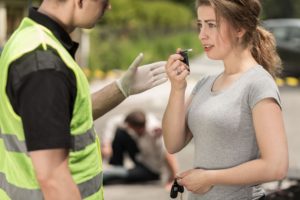
You’ve heard of police using a breathalyzer to determine if a driver is under the influence of alcohol during a traffic stop, but police are hoping that a new pilot program will give them a tool to use breath tests to look for the presence of marijuana and other drugs in a driver’s system.
Select units throughout Minnesota are in possession of the SoToxa Oral Fluid Mobile Analyzer, which can detect the presence of cannabis or other drugs in a person’s saliva sample. Currently the device is being used as part of a pilot program so that officials can better understand the effectiveness and accuracy of the device. Law enforcement also plan to test out a second device – the Drager DrugTest 5000 – at a later date in order to determine the best path forward for detecting drugs in a driver’s system.
Recreational marijuana is currently legal to use in Minnesota, but it’s still illegal to get behind the wheel when you are under the influence of the drug. If you are found to be operating a vehicle under the influence of cannabis or other drugs, you will be charged with a DUI. The charge and penalties are very similar to an individual who is charged for driving under the influence of alcohol.
Should I Submit?
If you are pulled over and a police officer asks you to take one of the new drug detecting roadside tests, should you comply and offer up your sample? If there is any chance at all that a positive reading will be found, even if it’s been weeks since you smoked, we suggest that you respectfully decline to provide a sample. Under the pilot program, sample collection is 100 percent voluntary, meaning an officer can’t force you to offer up a sample, and you can’t get in trouble for refusing to offer up a saliva sample.
Additionally, test results will not be admissible in court, and any reading cannot be used to establish a probable cause for arrest. The state is making it clear that the information obtained during the pilot program will not be used to help convict an individual, but you have nothing to gain from submitting a sample, so there’s no reason to volunteer your sample, unless you know for a fact that there’s a zero percent chance you’ll have a positive result.
You may face repercussions in the future for failing to submit to a drug breath test once the technology and science is perfected, but for now, just protect your interests and politely decline to submit a sample. You are well within your legal rights to simply say “no thanks,” so follow our advice in the rare instance you are asked to provide a drug test sample during a traffic stop.
And if you need legal assistance for a different traffic charge, be sure to reach out to Avery and the team at Appelman Law Firm today at (952) 224-2277.





